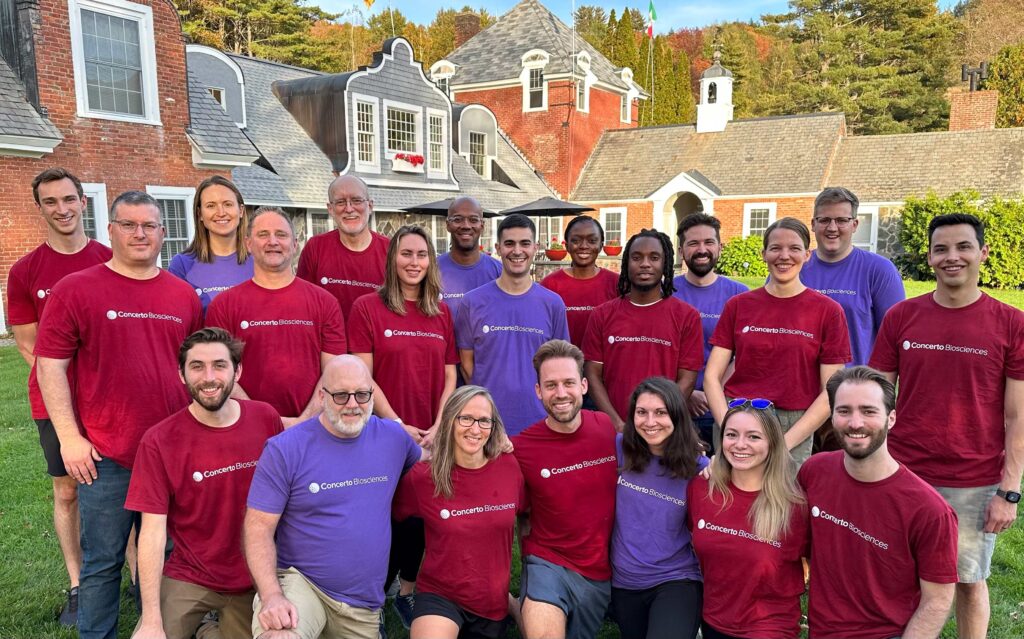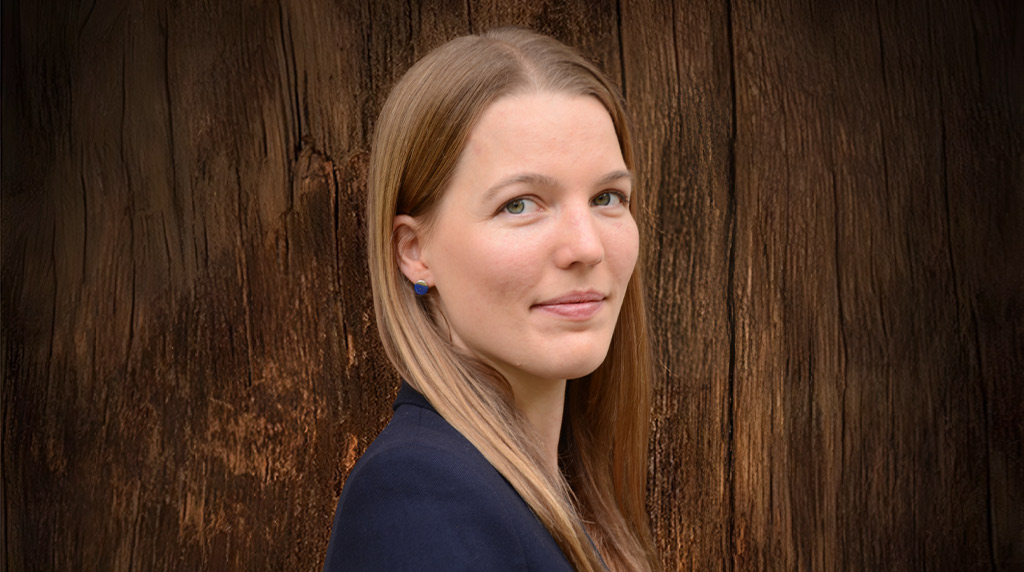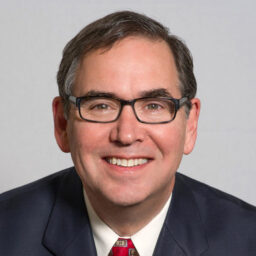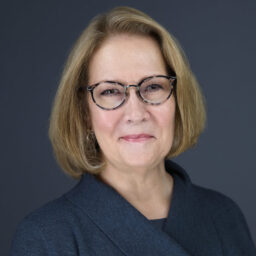Concerto Biosciences CEO Cheri Ackerman Elected to Hertz Foundation Board of Directors
The Fannie and John Hertz Foundation, a nonprofit dedicated to empowering the nation’s most promising innovators in science and technology, today announced the election of Cheri Ackerman to its board of directors.
Ackerman is co-founder and CEO at Concerto Biosciences, which is reinventing how humans relate to microbes by designing products that improve human health, enhance food quality and boost crop yields through the power of microbial communities. Concerto designs products that re-create microbial capabilities using a novel screening platform that Ackerman worked on during her postdoc. In 2020, in the context of the COVID-19 pandemic, Ackerman was published in Nature with co-first author Cameron Myhrvold, also a Hertz Fellow; she launched a successful startup; and she won the Hertz Foundation’s Harold Newman and David Galas Entrepreneurial Initiative Award.
“Cheri knows how to advance important work, even in the face of great challenges,” says Stephen Fantone, chair of the board of directors for the Hertz Foundation. “Her entrepreneurial drive and collaborative leadership style are certain to be assets to the board as we work to expand the impact and reach of the Hertz Foundation.”
As a Hertz Fellow herself, she shares with the entire Hertz community an unwavering commitment to applying her talents to the most pressing challenges facing our nation and world. She also brings to the board her own distinct view of the fellowship experience and the capacity to advocate for the particular needs of Hertz Fellows.
The Hertz Fellowship—the most prestigious doctoral fellowship program of its kind—is awarded to the nation’s most exceptional students in applied science, engineering and mathematics, providing the resources and lifelong support to accelerate their careers and amplify their research for ultimate impact.
“Cheri is exceptionally skilled at developing and championing ideas, cultivating multidisciplinary teams and networks, and advancing science and technology in meaningful ways,” says Robbee Baker Kosak, president of the Hertz Foundation. “I’m thrilled to have Cheri join the board, as we work together to amplify the foundation’s impact.”
Ackerman will begin her board term this month, along with four other new board members: Steven B. Lipner, executive director, SAFECode; Max Mankin, co-founder and CTO, Modern Hydrogen; Michael Schnall-Levin, CTO and founding scientist, 10x Genomics; and Alfred Spector, visiting scholar, MIT, and senior advisor, Blackstone.
Interview with Cheri Ackerman
We sat down with Ackerman to learn more about her work and what she hopes to contribute to the organization.
Q: What are you working on right now that’s most exciting to you?
Ackerman: I love building Concerto. Since founding the company in 2020, we’ve identified a microbe-based product that restores beneficial properties of the skin microbiome to address eczema, a disease that impacts hundreds of millions of people and costs the U.S. economy more than $5 billion annually. This year, we’re starting our first clinical trial for this product, and I’m thrilled.
Q: Why is joining the board important to you?
Ackerman: The Hertz Fellowship funding and ongoing community support have been instrumental in my success, so I want to give back. I also serve on Concerto’s board of directors, which has only existed since we closed our Series A funding a couple of years ago. I look forward to gaining more formal board experience working alongside Hertz Foundation board members and bringing that experience back to benefit Concerto’s board.
Q: What unique insights or perspectives do you bring to the board?
Ackerman: As an early-career board member, I can offer insight into how decisions, priorities and trade-offs may be different for my cohort compared to those of later-career fellows. The Hertz Foundation has also set a high priority on increasing representation across its fellows and board, which I wholeheartedly support. Currently, women are not well represented on boards in the U.S. generally, including the Hertz Foundation board. I hope that seeing me on this board helps other women see themselves in board roles too.
Q: Why is the Hertz Foundation important for the future of science and technology?
Ackerman: The freedom to innovate opens up opportunities to work on scientific questions that are difficult to fund through conventional means. For example, there’s no National Institute for Women’s Health. I strongly support sources of unrestricted funding that are made available to diverse researchers to address the most pressing scientific challenges of our day. Hertz is one of those. I also believe that the interdisciplinary nature of the Hertz community is where the world is headed: Complex problems require more diverse expertise and abilities than any one person possesses. My background is in chemistry and biological engineering. When I needed to learn how to evaluate and hire a data scientist for Concerto, I reached out to the data scientists that were already in my network because of the relationships we had built at Hertz Foundation workshops. Hertz gives its fellows the opportunity to build a network across diverse STEM disciplines in the earliest part of their careers.
Q: What advice would you give to the newest class of Hertz Fellows?
Ackerman: High school and college are somewhat artificial settings for learning, and it’s easy to conclude from undergraduate education that there is a linear relationship between effort and output: If I put in more effort, I do better. Grad school and real life aren’t like that. In real life, success or failure results from a very complex (and often invisible) combination of factors that include your own effort, the contributions and support of other people, and events beyond your control. Maintaining a model of “my effort → my success” can lead to a wide variety of mental errors like arrogance and self-aggrandizement on the one hand or paralysis and self-judgment on the other. Take care to continually update your cause-and-effect model to account for the complexities of real life.

About the Hertz Foundation
The Fannie and John Hertz Foundation identifies the nation’s most promising innovators in science and technology and empowers them to pursue solutions to our toughest challenges. Launched in 1963, the Hertz Fellowship is the most prestigious fellowship program in the U.S., fueling more than 1,240 leaders, disruptors and creators who apply their remarkable talents where they’re needed most — from our national security to the future of healthcare. Hertz Fellows hold over 3,000 patents, have founded more than 375 companies, and have received more than 200 major national and international awards, including two Nobel Prizes, 10 Breakthrough Prizes, the National Medal of Technology, the Fields Medal and the Turing Award. Additionally, 52 are members of the National Academies of Sciences, Engineering and Medicine, and 37 are fellows of the American Association for the Advancement of Science. Learn more at HertzFoundation.org.


